The year 2022 has been difficult for us Europeans. Therefore, it seems particularly important to search for good things from close by. From the perspective of Digital Geography Lab, it’s a pleasure to wrap up the successful year 2022.
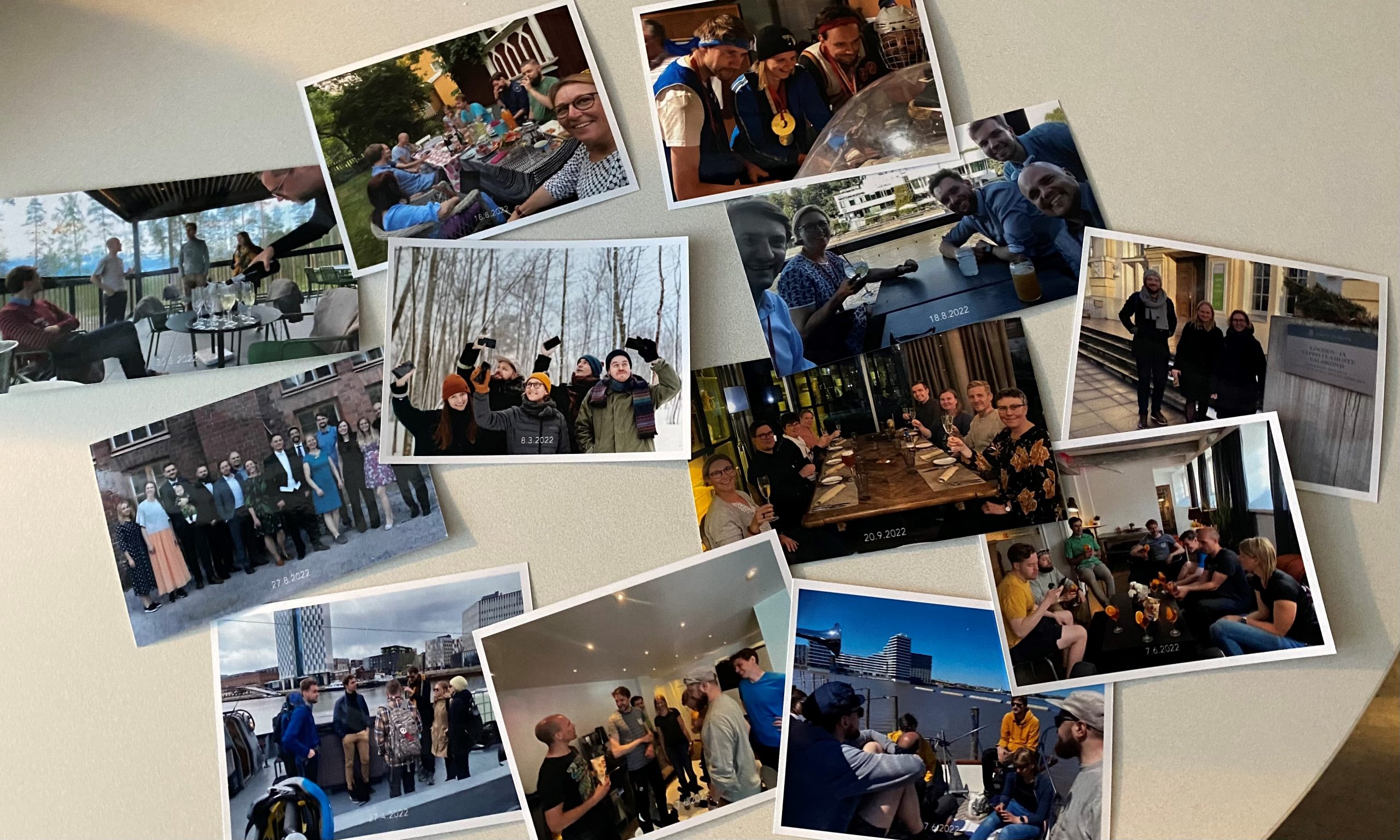
Our group members: present, previous and future
We’ve had 15-17 researchers working in the Lab during the year 2022 . The team has been relatively stable, but of course changes take place. Tatu Leppämäki joined as a PhD researcher in MOBICON project and Oleksandr Karasov as a post-doc in BORDERSPACE project. Håvard Aagesen officially moved to Norway, but for real remains in close collaboration with us. At the end of the year, Charlotte van der Lijn, Emil Ehnström, and Marisofia Nurmi will move forward as YLLI project ends at the end of the year. They all have exciting workplaces waiting for them from January onward! While some are moving on, the recruitment for future positions has started, and at least four new researchers will joint the Lab early next year. We are already able to welcome Silviya Korpilo as a postdoctoral researcher in GREENTRAVEL and Aina Brias Guinart for MOBICON project!
On top of the researchers, we’ve had many wonderful MSc students working in our projects. Out of the earlier students, MSc Jussi Torkko won the price of the best thesis by the City of Helsinki with his work in our Lab!
Also the connections have been tight with many of the former lab members, and we have been happy to work together with our lovely collaborators close and further away.
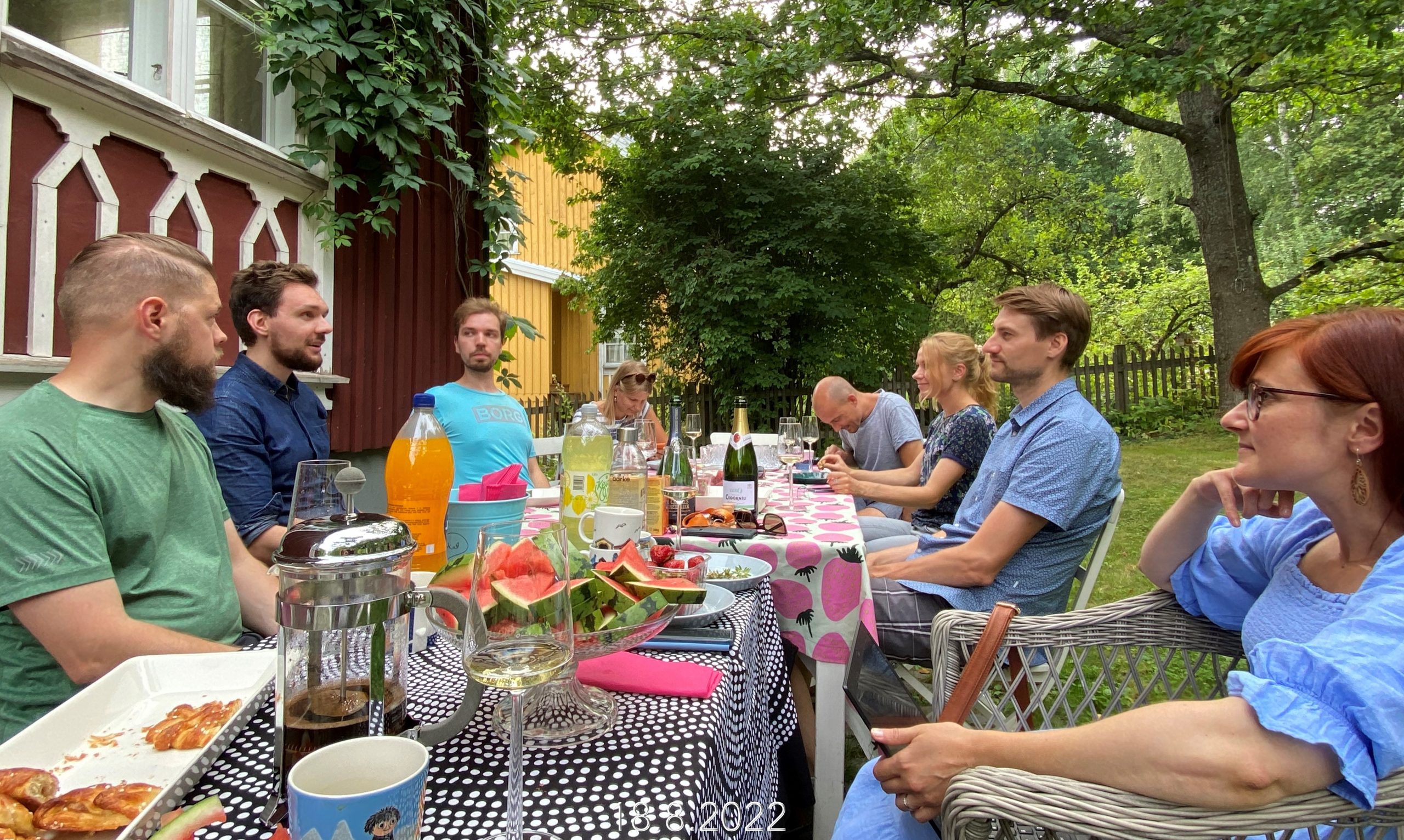 Our first lab meeting after summer holidays. From left Tuomas Väisänen, Elias Willberg, Tatu Leppämäki, Janika Raun, Christoph Fink, Kerli Müürisepp, Olle Järv and Johanna Eklund celebrating the summer and the start of the new academic year. All of these lovely peeps continue in DGL also in 2023!
Our first lab meeting after summer holidays. From left Tuomas Väisänen, Elias Willberg, Tatu Leppämäki, Janika Raun, Christoph Fink, Kerli Müürisepp, Olle Järv and Johanna Eklund celebrating the summer and the start of the new academic year. All of these lovely peeps continue in DGL also in 2023!
Scientific successes: new projects and plenty of papers
We have been productive scientifically by many measures. We’ve made scientific contributions in advancing knowledge and methods on using big spatial data for advancing environmental sustainability, wellbeing and socio-spatial equities. The results have been published in more than 20 refereed empirical or review papers in respected scientific journals. We started a new, long-term project MOBICON and smaller project MATRIX. We received positive funding results for Tuuli Toivonen‘s ERC Consolidator Grant project GREENTRAVEL and H2020 project MOBITWIN. Johanna Eklund continued successfully with her Sustainable conservation outcomes project, Tuomo Hiippala with MAPHEL and Olle Järv with BORDERSPACE and its sister projects. Tuuli’s URBANAGE advanced well with the efforts of Christoph Fink and Elias Willberg. YLLI and MOPA projects were successfully finished. Also academic careers were advanced: Johanna Eklund and Henrikki Tenkanen received the Title of Docent linked to our Lab.
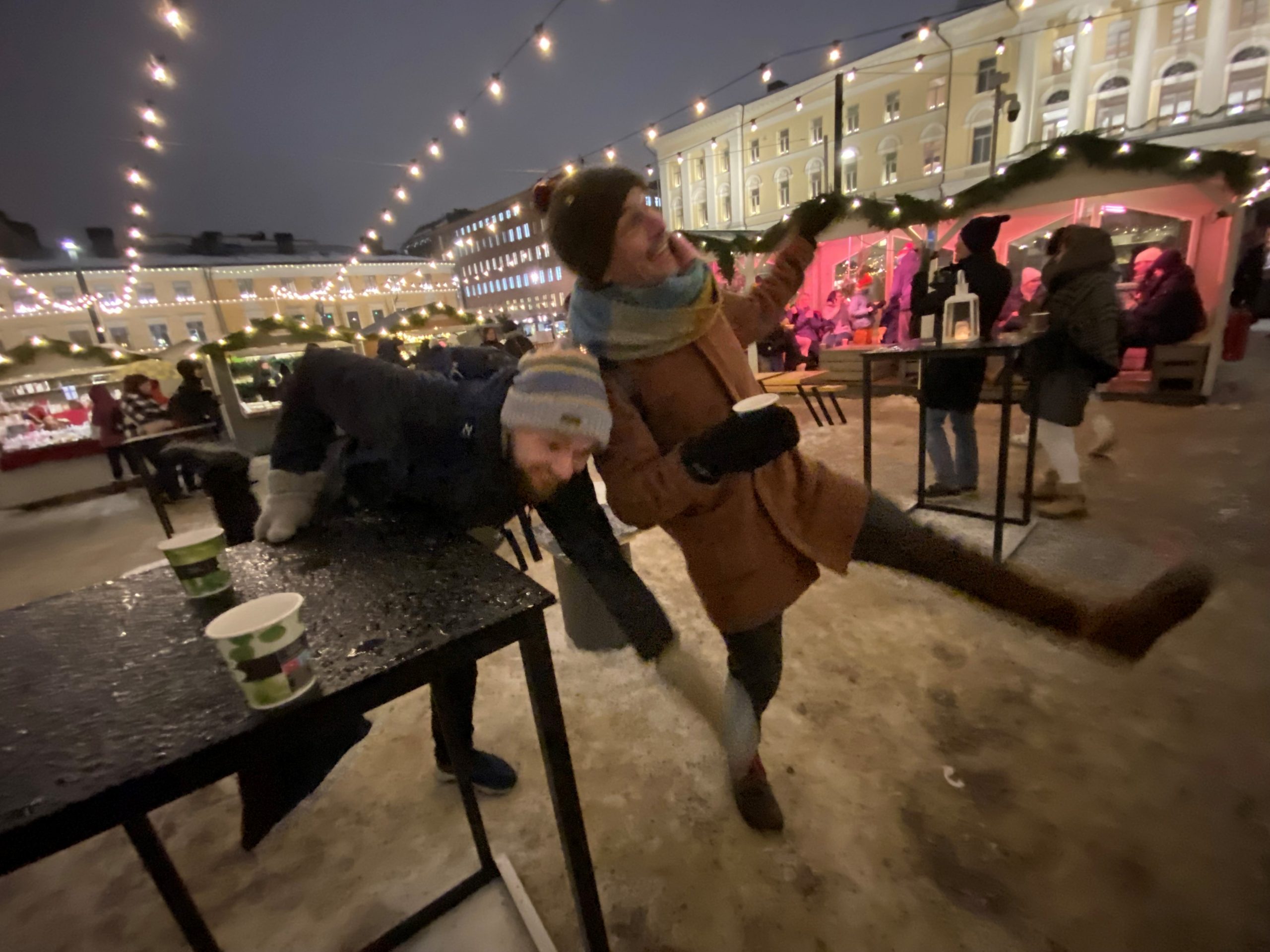 The last scientific paper of the year was accepted just before holidays. It deals with accessibility and 15-minute city, considering also the slippery conditions – demonstrated here by the authors Willberg & Fink!
The last scientific paper of the year was accepted just before holidays. It deals with accessibility and 15-minute city, considering also the slippery conditions – demonstrated here by the authors Willberg & Fink!
Reaching out through collaborations, conferences and keen teaching
Our lab has been taking part in teaching. We’ve been responsible for highly popular courses Introduction to Advanced Geoinformatics, Geopython, Automating GIS processes, Advanced Seminar in Geoinformatics and Analysing Accessibility and Mobility. Particular thanks to Tuomas Väisänen, Christoph Fink and Olle Järv for your contributions! Tuuli acted as the Director of the Degree Programmes of Geography until August and lead the process of renewing the MSc curriculum. Petteri Muukkonen continues as the Director of the Urban Studies and Planning Programme.
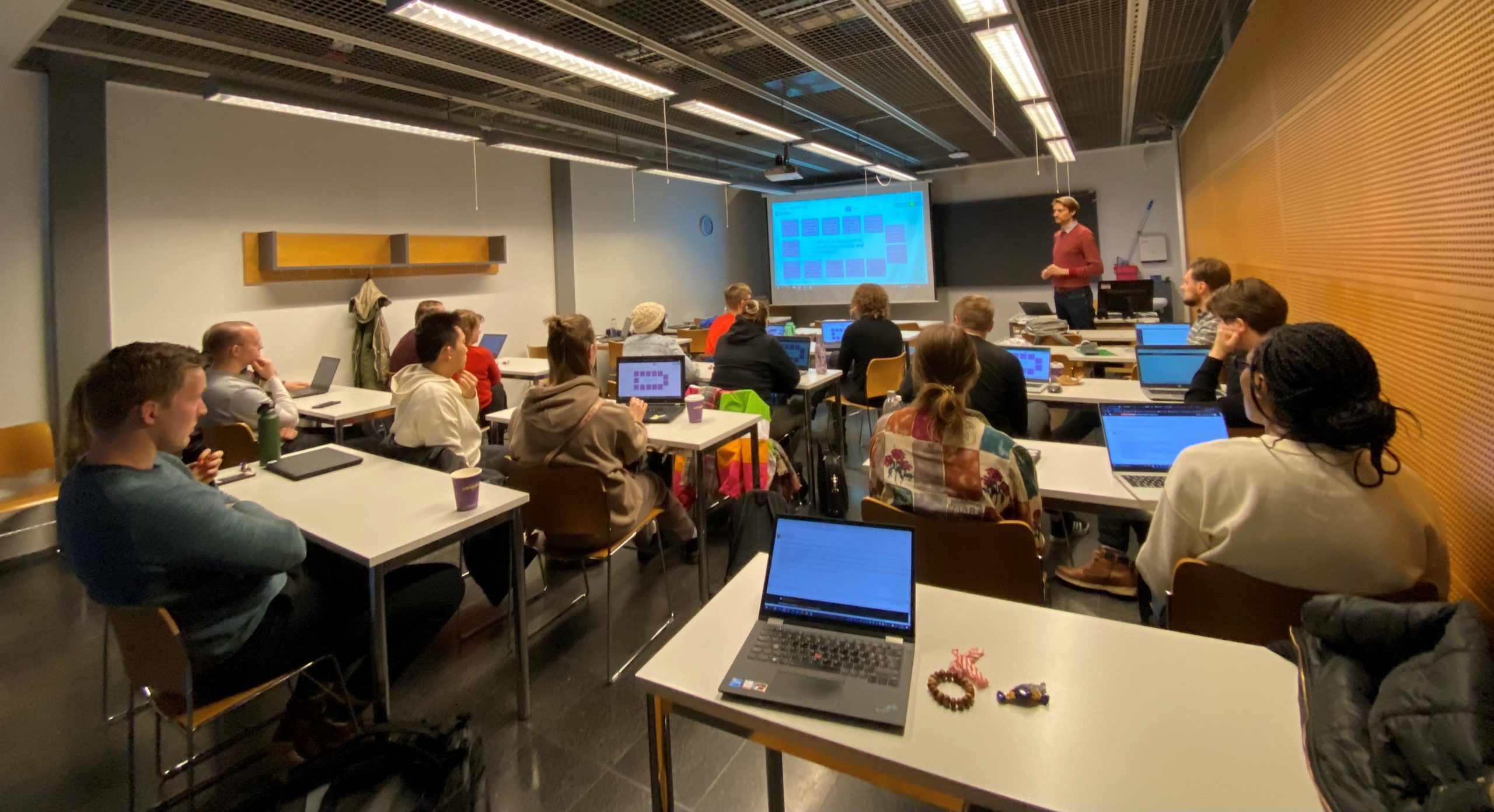
Wrapping up the Analysing Accessibility and Mobility -course with a student seminar. Olle leads the way!
We reached out to the scientific community in many ways. We had a large representation in Mobile Tartu Conference in the summer and some participated the Conference of Location Based Services, ECCB, Monitoring and Management of Visitors and Urban Transitions 2022. We used Twitter actively (particularly Oleksandr during the #30DayMapChallenge!) and were actively blogging. We spent time productive with collaborators in Cambridge, Luxemburg, Munich, Tartu and Uppsala. Closer by, we were happy to work with collaborators e.g. at Aalto University, Elisa Oyj, SYKE, FMI, LUKE, the City of Helsinki and Metsähallitus.
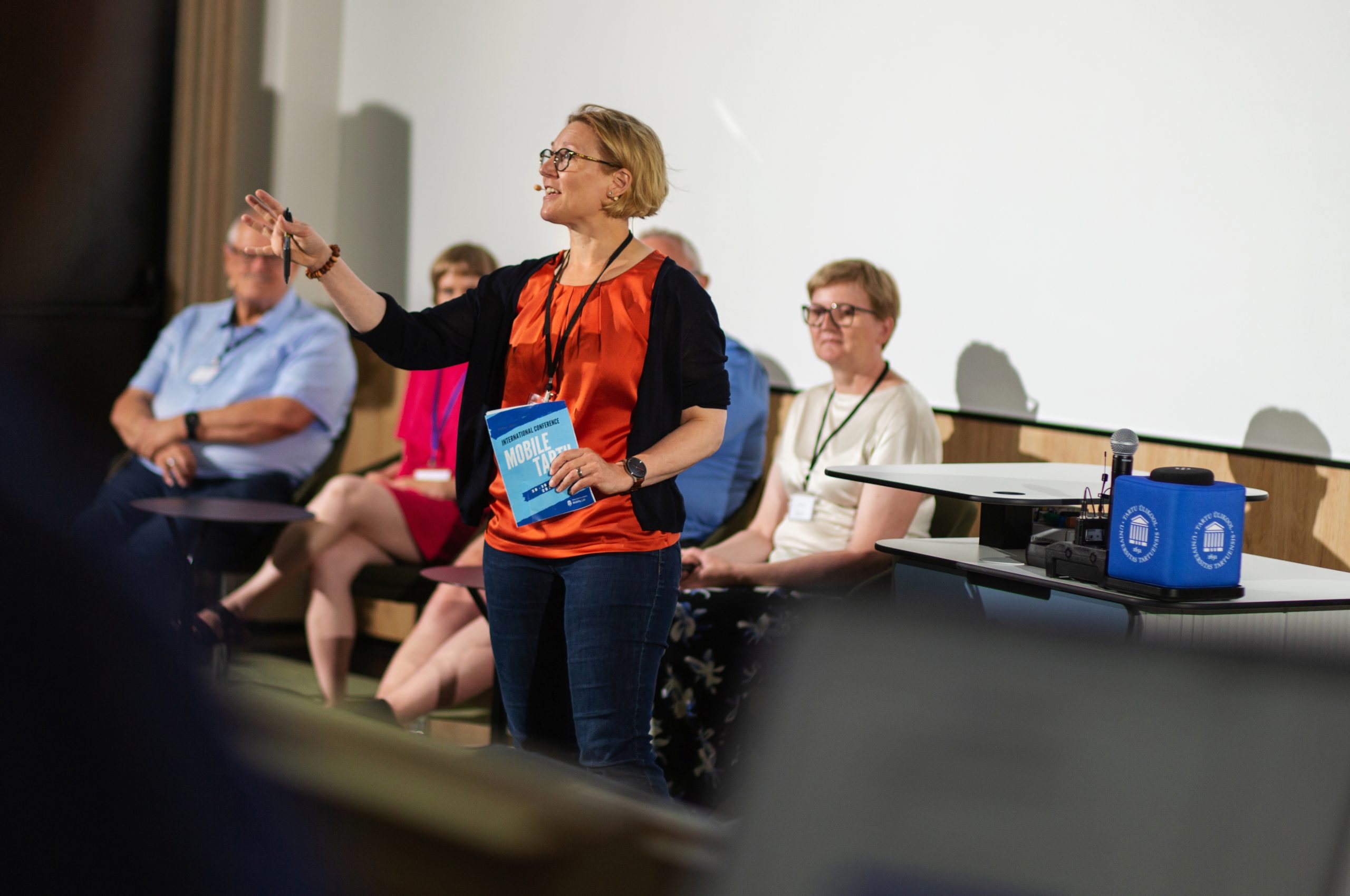
We had many presentations in Mobile Tartu conference, e.g. by Kerli Müürisepp, Janika Raun, Olle Järv, Christoph Fink and Elias Willberg. Tuuli (in pic) chaired a panel discussion.
Enjoying life!
We’ve respected the principle of celebrating every step when preparing articles or submitting applications. Considering the amount of activities in 2022, this has been often. And, as some of the important parties (like Doctors2020/2021!) were not organised during covid times, we have been catching up even with these celebrations.
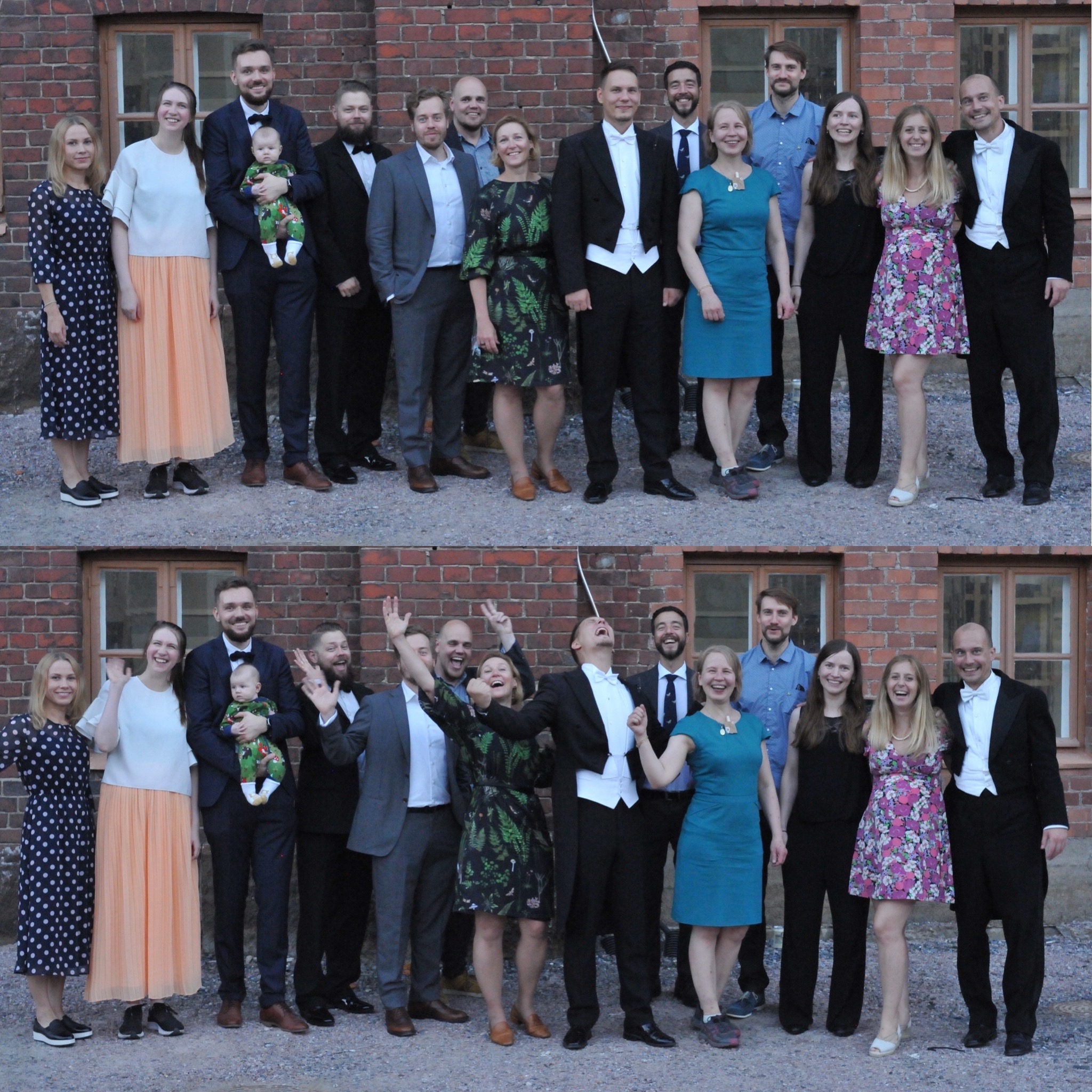
Joel Jalkanen‘s mega-karonkka, 1.5 years after the doctoral defense, was a clear festive highlight of the year! Here former and present Digital Geography Lab members pictured with the star of the day. Note also three other #doctors2020 in picture: Gonza Cortés Capano, Vuokko Heikinheimo and Christoph Fink, and the former or future lab members Claudia Bergroth, Henna Fabritius and Anna Hausmann.
On top of festivities, we’ve spent time together by brainstorming together or after office hours climbing, boating, dining, and bathing in sauna. We have also been lucky for good things in people’s personal lives: We welcomed new family members and celebrated new homes for many ❤️
Now it’s time to rest a bit and enjoy the holidays!
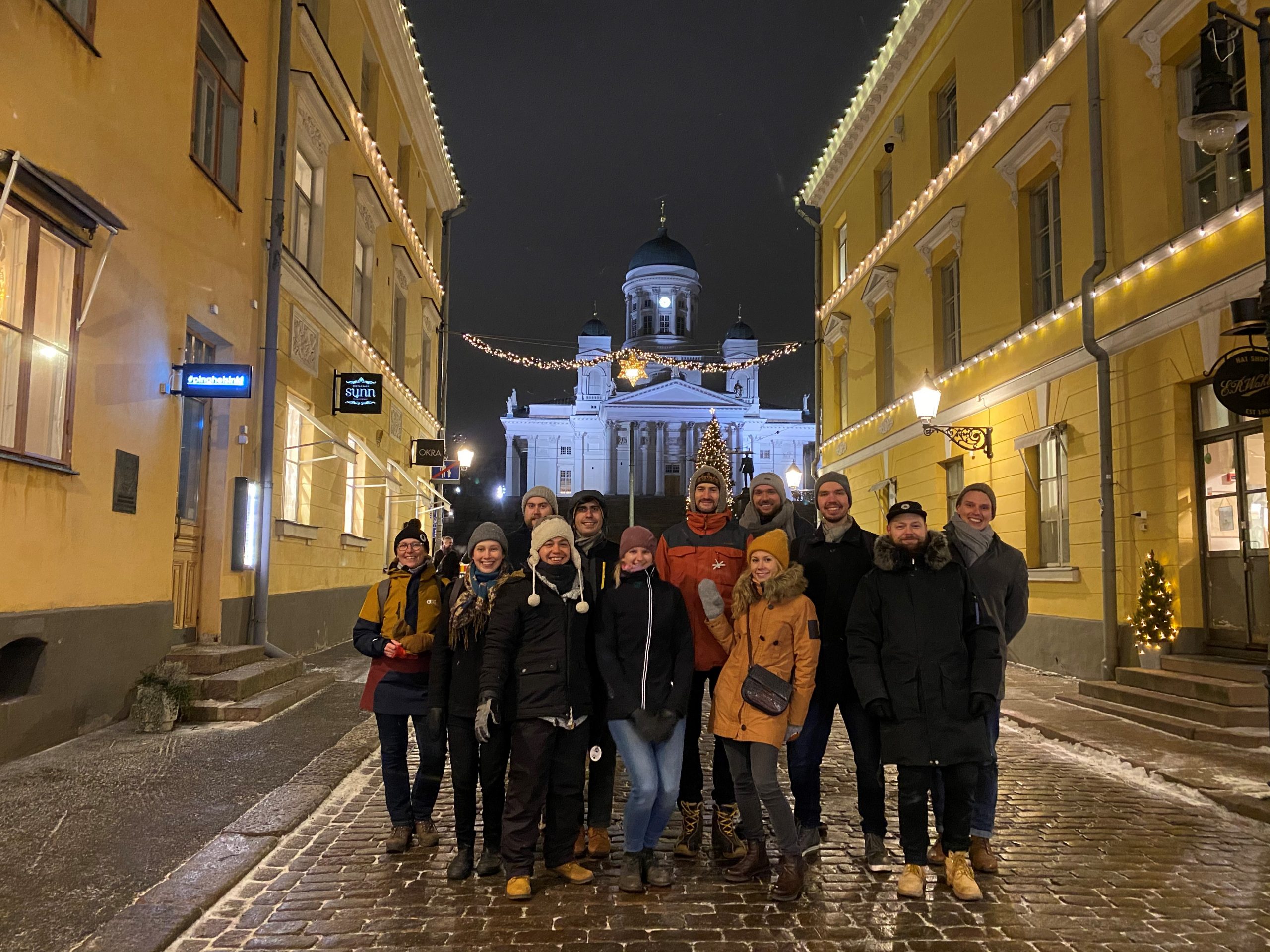 Merry Christmas and Happy and Peaceful New Year to all! Looking forward to joint scientific adventures in 2023!
Merry Christmas and Happy and Peaceful New Year to all! Looking forward to joint scientific adventures in 2023!



 Our first lab meeting after summer holidays. From left Tuomas Väisänen, Elias Willberg, Tatu Leppämäki, Janika Raun, Christoph Fink, Kerli Müürisepp, Olle Järv and Johanna Eklund celebrating the summer and the start of the new academic year. All of these lovely peeps continue in DGL also in 2023!
Our first lab meeting after summer holidays. From left Tuomas Väisänen, Elias Willberg, Tatu Leppämäki, Janika Raun, Christoph Fink, Kerli Müürisepp, Olle Järv and Johanna Eklund celebrating the summer and the start of the new academic year. All of these lovely peeps continue in DGL also in 2023! The last scientific paper of the year was accepted just before holidays. It deals with accessibility and 15-minute city, considering also the slippery conditions – demonstrated here by the authors Willberg & Fink!
The last scientific paper of the year was accepted just before holidays. It deals with accessibility and 15-minute city, considering also the slippery conditions – demonstrated here by the authors Willberg & Fink!


 Merry Christmas and Happy and Peaceful New Year to all! Looking forward to joint scientific adventures in 2023!
Merry Christmas and Happy and Peaceful New Year to all! Looking forward to joint scientific adventures in 2023!